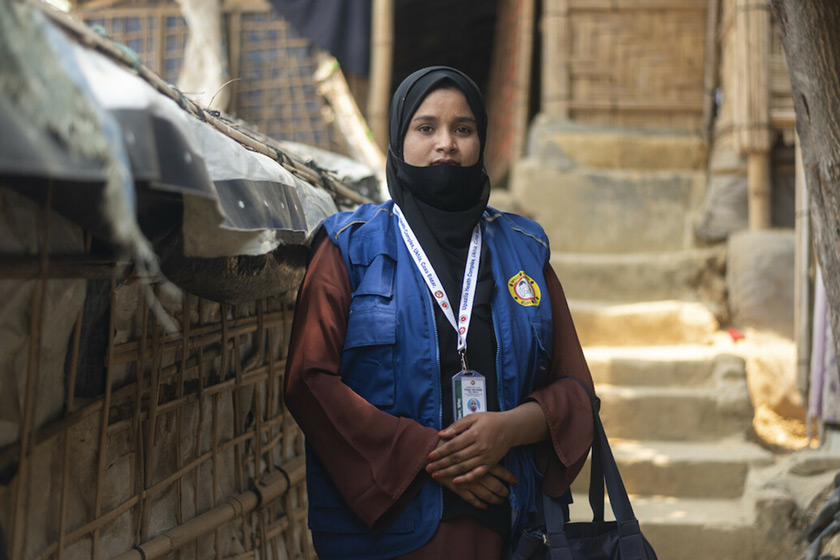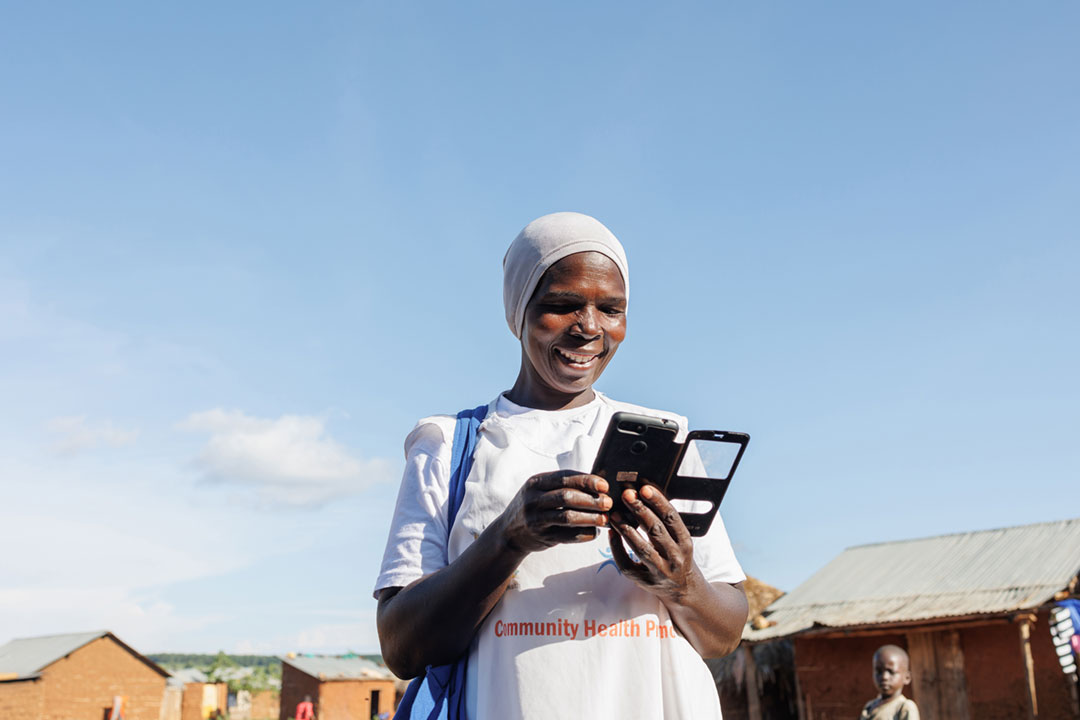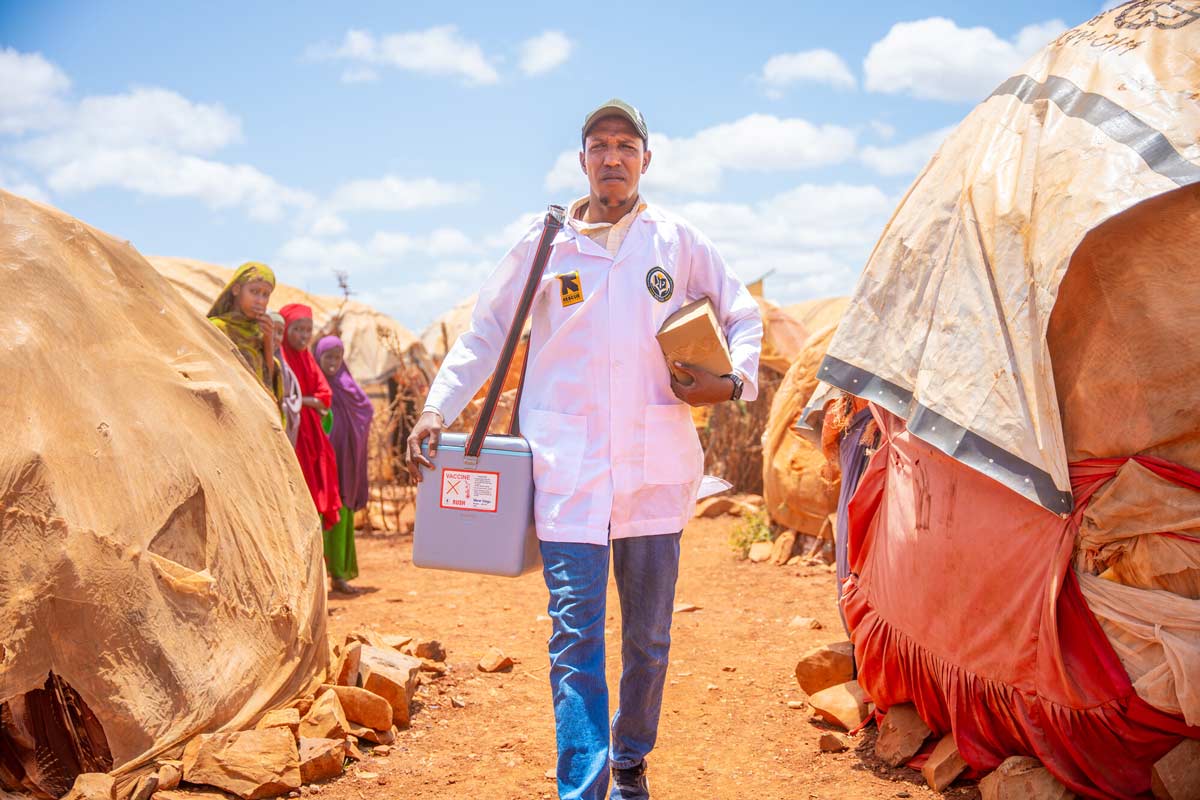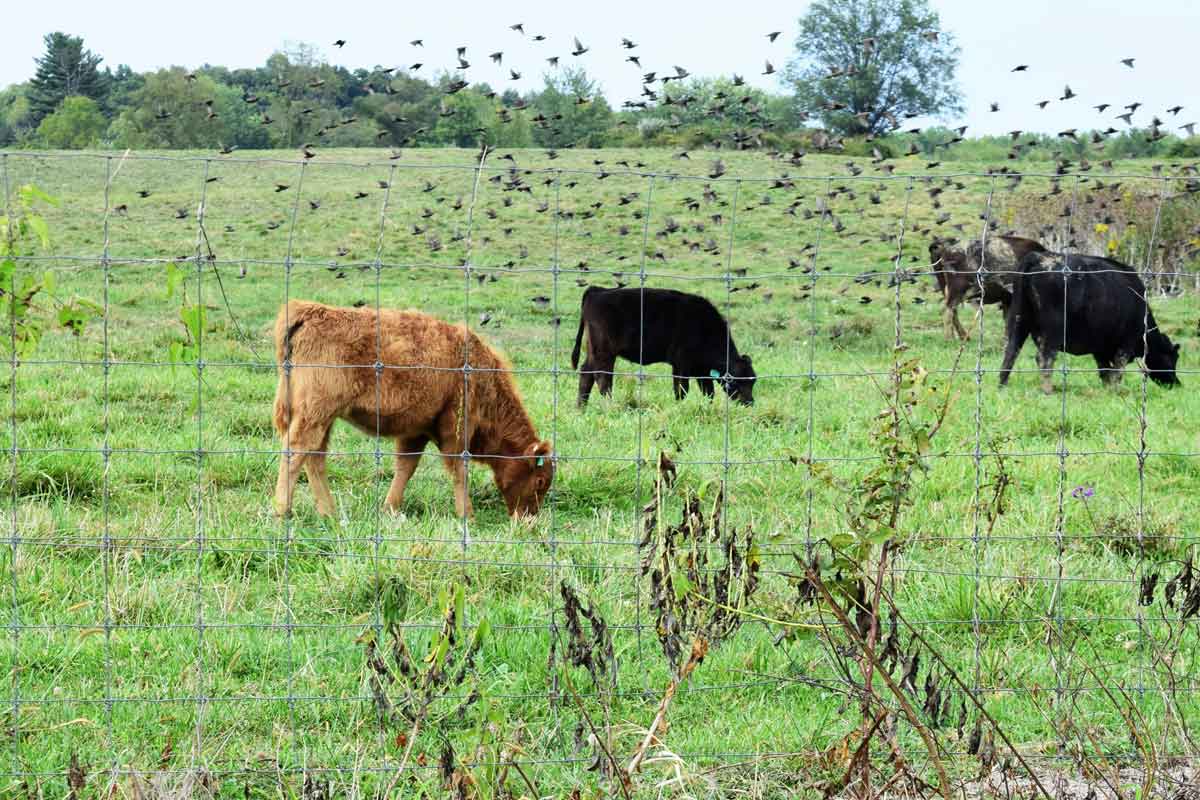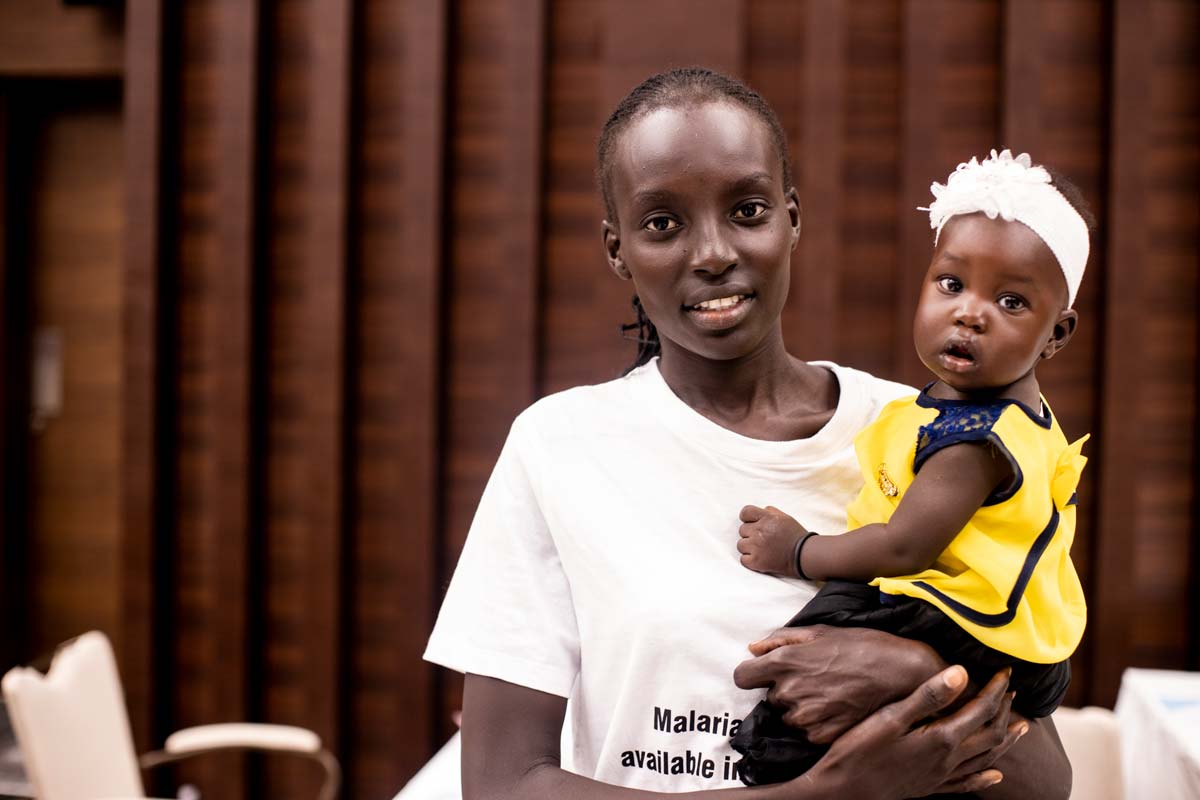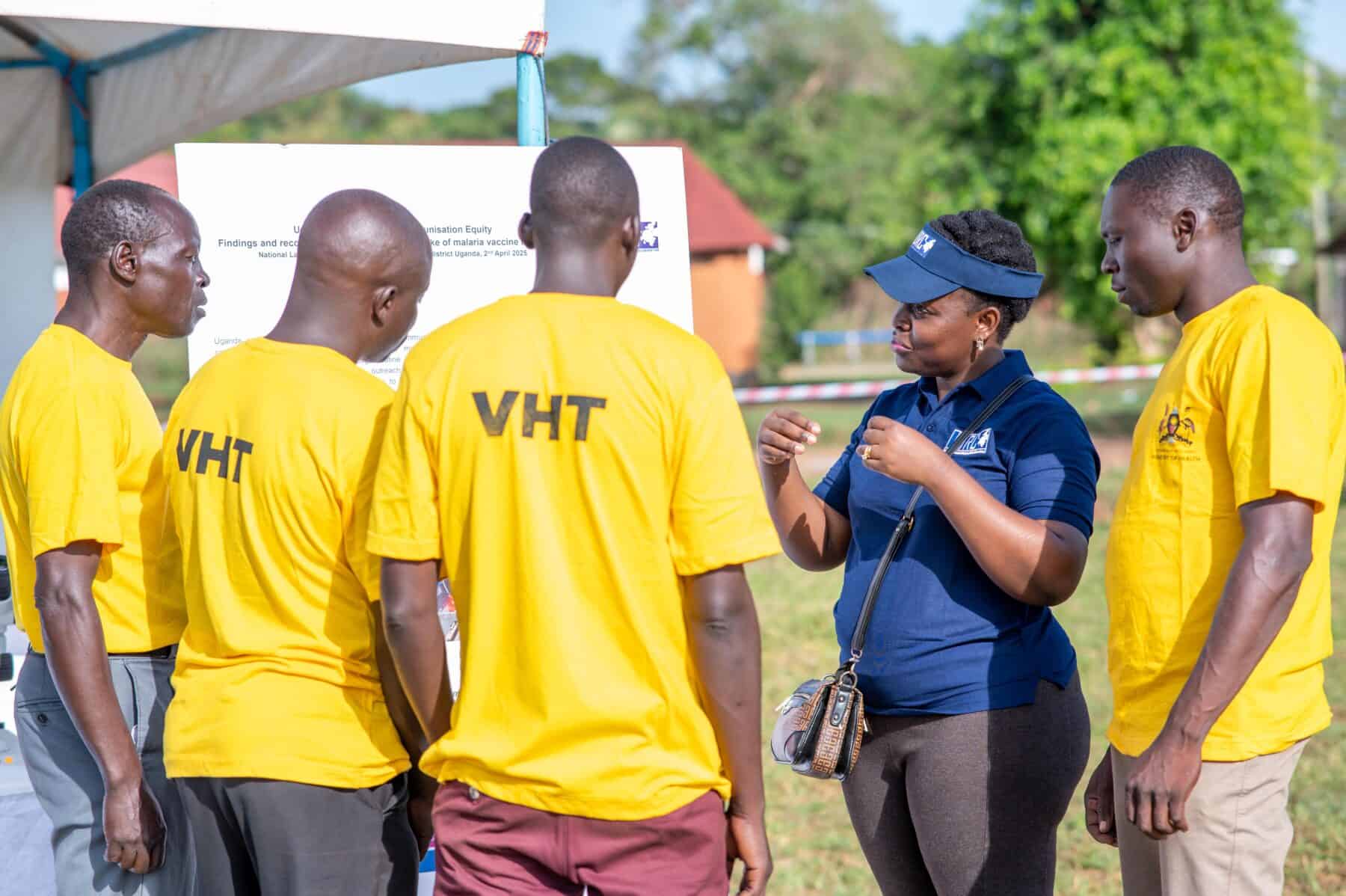Global problems, local solutions: the health workers helping communities brace for climate change
They’re doing it out of necessity, and sometimes without much support – and many of them express a strong interest in learning, from each other, what works.
- 22 April 2024
- 8 min read
- by Ian Jones , Reda Sadki , Ian Steed
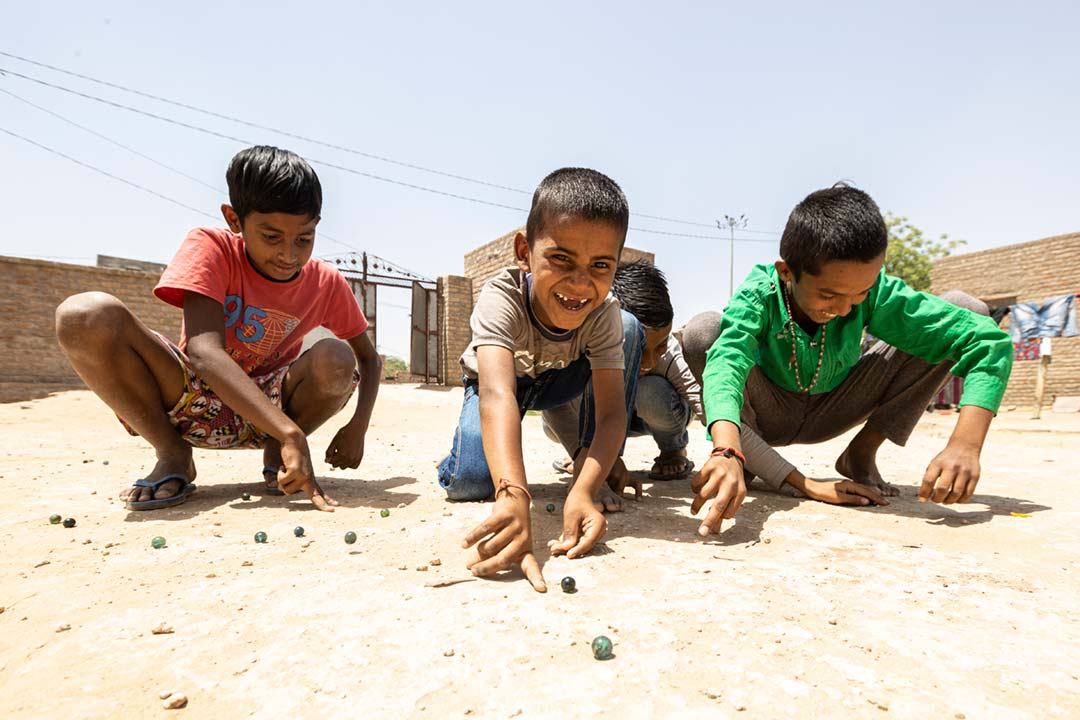
The solution to climate change is often seen to be dependent on global agreements on limiting emissions, to prevent temperature rises from exceeding global targets (1.5°C above pre-industrial levels). Vital though these efforts are, the effects of climate change on health are already being felt, and action is needed now to help communities prepare for and mitigate the growing impact of climatic shifts.
In 2023, the Geneva Learning Foundation (TGLF), a Swiss non-profit that facilitates the Teach to Reach gatherings that bring together tens of thousands of health workers, invited members of its international networks to share their local experiences of climate change and its impacts on health. Their contributions provide a fascinating and troubling insight into how climate change is already affecting the health of local communities.
Although not specifically requested, some respondents described local initiatives that are being pursued to address climate challenges. Then, during COP28, TGLF invited respondents' thoughts on what actions global and national leaders should take, and to share what they are doing personally to help their local communities.
Some contributors highlighted national policies that are addressing climate risks.
"The Government of Ghana came out with a policy called Green Ghana. It is a special day in Ghana purposely used for tree-planting to regain Ghana's vegetation. The Municipal Assembly in collaboration with the Forestry Commission enacted by-laws to regulate lumbering and charcoal burning within the municipality."
– Kingsley Kofi Nignere, District, NGO, Ghana
Others highlighted how they were taking steps to boost carbon capture by planting trees. This actually delivers multiple benefits, addressing environmental degradation, enhancing biodiversity, increasing food supply and creating more pleasant surroundings.
"Personally, recognising the gravity of climate change, I've committed to dedicating a day to environmental protection. I've allocated two hectares solely for tree-planting to contribute to environmental preservation. I earnestly encourage fellow colleagues globally to undertake similar initiatives."
– Dr Mitume Mutumwa is affiliated with a national NGO in the Democratic Republic of the Congo
"I've created a green environment within my compound by planting trees that act as windbreaks and ensure the safety of my family. While neighbouring homes are affected by destructive winds, my house remains secure. Additionally, I've cultivated fruit trees that enable me to provide sustenance for my family throughout the year."
– Boubakari Hamadou is affiliated with a regional NGO in Cameroon
"But the little things I can help [with] is planting trees and some flowers around our health institutions, to have conducive environment for clients and health workers."
– Amb Dr Abdulrahman Kitilly Hudu works for UNICEF in Borno State, Nigeria
Higher temperatures are a particular challenge in already hot climates, creating conditions in which heat is a danger to health. Existing work practices and ways of delivering health services may not remain feasible. In some cases, respondents have worked with communities to identify suitable adaptations in the face of extreme heat.
"With the rising temperatures, it became increasingly difficult for parents to bring their small children to vaccination sites. The relentless heat made it unbearable to venture outside, leaving them worried about their children's health and well-being. Realising the urgency of the situation, we decided to act. Together, the parents and authorities brainstormed possible solutions to ensure that the children received their vaccinations while taking the extreme climate conditions into account. After careful consideration, they came up with a plan to adjust the session timings. The sessions were rescheduled to early mornings or late evenings when the temperatures were relatively cooler. The new schedule proved to be a tremendous success."
– Anonymous, WHO, India
However, one of the key insights from TGLF's earlier work was that climate change is mostly not creating new challenges, but exacerbating existing ones. Furthermore, climate effects are not felt in isolation, but interact with and often amplify other environmental issues that can precipitate ill health. Many health workers are therefore working to raise awareness of the causes of disease and how disease can be prevented, activities that will help build greater resilience to climate impacts.
"Even though it is difficult for the people to understand what climate is all about, I was able to get the message across a little. For example, I explained the need to avoid dumping refuse inside gutters for rain to flush it. I explain the importance of tree-planting when the old one is cut down. I explain the need to get safe drinking water."
– Lilian Mbando Bie is a nurse who works for the Ministry of Health, Cameroon
Several respondents noted that it was difficult to achieve major impacts at the local level, but that even small acts could make a difference – especially if they are also adopted by others.
"The little that I can do is to advise the community members on tree-planting, to go green, and to protect the environment through effective sanitation and hygiene activities."
– Gwom Henry Moses works for the Ministry of Health in Ropp District, Plateau State, Nigeria
"During such hot weather, I have been actively advising people on all occasions to stay hydrated, particularly emphasising the importance for infants and the elderly. I have gone to the extent of calling relatives and acquaintances in other localities to ensure they are aware of the need for hydration. This outreach has been successful, and I've managed to reach a significant number of individuals without even realising it."
– Djibo Aichatou works in the national Ministry of Health, Niger
In a bid to have greater impact, several respondents described how they had joined forces with others, setting up or helping out NGOs seeking to support communities and build resilience, or were attempting to address underlying issues that promote climate-unfriendly community activities.
Have you read?
"As a personal contribution, I founded Humanity Care Africa, a non-governmental organisation which provides health care to the underserved and hard-to-reach communities."
– Dr Akongnwi Stephen N.J. is affiliated with an NGO in the South West Region of Cameroon
"In the fight against global warming, we work as a team by forming environmental circles. Regarding the changes we encounter, we highlight disasters, erosions and fires that occur from time to time, air pollution caused by dust, the overwhelming sun, floods, and many other environmental problems mainly related to deforestation and poor waste management in our environment. These issues expose us to various health problems. With a total of 50 people, which forms 10 circles of 5 people each, we have organised ourselves to raise awareness in the community and explain to them the dangers we face due to the behaviours of environmental incivility that we engage in through our daily actions. Our goal is to raise awareness and foster a sense of climate justice. Additionally, we highlight infectious and parasitic diseases, allergies and general systemic diseases, all with their multiple complications. This serves as a lesson in environmental citizenship."
– Mapenzi Ndagonywa Philemon works for a regional NGO in the Democratic Republic of the Congo
"My primary objective is to make a substantial contribution to curtailing desertification, which would necessitate a decrease in the excessive felling of trees. These trees play a pivotal role as a primary source of income for the local population. To achieve this, I am committed to creating alternative income-generating activities for the youth, thereby providing them with sustainable opportunities while also safeguarding the environment."
– Moctar Traore is a health worker in Troun District, Mali
The examples point to the remarkable commitment of health workers to safeguard the health of their local communities, in some cases undertaking a wide range of activities to address the host of health challenges being driven by climate change.
"As a health communicator and advocate for weather change and health professional, I regularly conduct sensitisation meetings to activate and educate communities I serve on areas such as:
Proper ventilation in homes, schools, markets and places of worship to prevent disease outbreaks such meningitis, measles, etc. [and] awareness of the importance of vaccination to build trust and promote demand during unfavourable weather condition like the heat period. This has helped my communities to become readily prepared to overcome changes in weather conditions, especially preventing disease outbreaks."
– Tina Iroghama Agbonyinma works for UNICEF in Dawakin Tofa, Nigeria
"Unaccustomed to warmer temperatures, residents faced increased exposure to ticks and mosquitoes that thrived in the changing climate. I observed a rise in cases of illnesses uncommon to their region – tick-borne diseases like Lyme disease and mosquito-related infections such as malaria. Concerned for my community's well-being, I spearheaded initiatives to educate the townsfolk about these emerging health risks. I collaborated with health care professionals to establish preventive measures, advocating for protective clothing and repellents, organising workshops on identifying symptoms, and lobbying for increased health care resources to manage these previously rare illnesses. Despite these efforts, the illnesses continued to affect the town, causing concern and hardship among the residents. However, I didn't relent. I tirelessly fundraised for research into local disease patterns influenced by climate change and advocated for policies addressing the broader issue of changing health landscapes in cooler regions. My commitment and resilience became a beacon of hope. While unable to fully counter the health impacts of climate change, my dedication inspired a unified effort among the townsfolk to adapt, mitigate risks, and support each other in navigating the evolving challenges posed by the changing climate and associated health issues."
– Lucy Pam Dangyang works for WHO in Nigeria
Collectively, the experiences shared highlight the acute awareness of climate effects on health among health workers, and their desire to help their local communities mitigate their impacts. Their trusted role within communities means that, given the chance, they have the potential to make a valuable contribution to the ground-up strengthening of community resilience to withstand the growing impacts of climate change on health.
At Teach to Reach 10 on 20–21 June 2024, immunisation and other primary health care staff will continue to share their experience and insights, and call for action.
Learn more:
- Climate change is a threat to the health of the communities we serve: health workers speak out at COP28
- Investing in the health workforce is vital to tackle climate change: A new report shares insights from over 1,200 on the frontline
- On the frontline of climate change and health: A health worker eyewitness report [full report]
Note: Contributor quotes in this article are their own and do not necessarily represent their employers.
